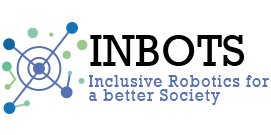
On november the 9th, in the context of the United Nations Climate Change Conference (COP25), INBOTS participated in a Conference of the Project CertificaRSE where experts in taxative systems and representatives from several institutions discussed about the different lines of action to control emissions through the use of fiscal incentives and environmental taxes.
The recent findings of the work carried out in multiple research projects in cooperation with international organizations was disseminated (such as the UN Subcommittee on Environmental Taxation). Under this frame, María Amparo Grau defended the idea of the need of putting technology at the service of social, enviromental and Good governance objectives; in the world of digital economy, Airtificial intelligence and robots have the capacity to collect data from interactive robots to take decisions for the global benfit. As she published in an article entitled “Big Data and robots to fund UN Sustainable Development Goals“.
But, how licit is this use of private data in terms of global sustainability?
As an example of the magnitude of this issue, just think of the gigantic amount of data that can be provided by an autonomous vehicle; data might be use to reduce congestions, optimize engines or avoiding accidents as an example.
This event was also an opportunity to see the works that have been carried out in public and private sectors and to identify some possible partnerships between between them in the framework of their shared social responsibility.

